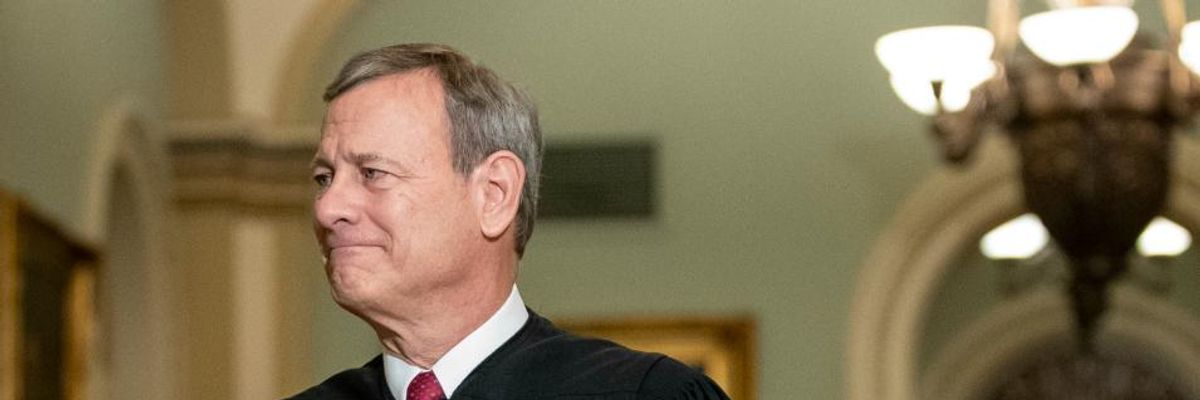The competing Republican and Democratic positions over the nature of the Senate trial of the House passed articles of impeachment against President Donald J. Trump are intensifying.
The Constitution foresaw the partisanship that would likely animate the impeachment of the President in designating the Chief Justice as the presiding officer of the impeachment trial. Alexander Hamilton elaborated in Federalist 65: "The prosecution of [impeachable offenses]...will seldom fail to agitate the passions of the whole community, and to divide it into parties more or less friendly or inimical to the accused...{I]n such cases there will always be the greatest danger that the decision will be regulated more by the comparative strength of parties, than by the real demonstrations of innocence or guilt."
Chief Justice John Roberts should be empowered by the Senate to prescribe the procedures for the impeachment trial of President Donald Trump to promote public confidence in the outcome. Among other things, the procedures should govern the admissibility of evidence, claims of privilege, subpoenas to compel testimony of documents, the burden of proof, direct and cross-examination of witnesses, and jury instructions as to the elements of an impeachable offense.
"Making the Chief Justice the impresario of President Trump's impeachment trial is innovative and constructive. This procedure offers benefits unavailable with any other imaginable alternative. It should attract Senators opposed to the prospect of procedures indirectly dictated by President Trump himself."
The Chief Justice serves for life shielded from partisan pressures. Life tenure makes the Chief Justice the optimal choice for presiding over the impeachment trial of the President to dispel combustible suspicions of bias. The necessity of the appearance of justice argues in favor of a Senate rule delegating to the Chief Justice authority to prescribe trial procedures, but subject to override by a simple Senate majority.
Public confidence in Congress hovers at 10 percent. The corresponding figure for the United States Supreme Court is 42 percent. The two major parties are in disrepute. A 42 percent plurality of voters are registered as independent, 29 percent Democratic, and 27 percent Republican. Additionally, most Senate-jurors confront conflicts of interest that would justify disqualification in ordinary civil or criminal cases. Republican Senators are predisposed in President Trump's favor to retain Republican control of the White House and the Senate in 2020. Democratic Senators are predisposed against Mr. Trump to promote the election of a Democratic president in 2020 and to regain a Democratic Senate majority.
By comparison, Chief Justice Roberts has earned considerable public confidence with judicial temperament and robust defense of judicial impartiality that had been questioned by President Trump. Chief Justice Roberts publicly noted: "We do not have Obama judges or Trump judges or Bush judges or Clinton judges." The Chief Justice's major 5-4 opinions have skillfully navigated between the conservative and liberal constituencies. Among other things, conservatives have assailed his twin opinions upholding President Barack Obama's Affordable Care Act. Liberals have chafed at his opinions sustaining President Trump's travel ban and invalidating the preclearance procedures of the Voting Rights Act.
Delegating procedural authority to the Chief Justice for the impeachment trial of President Trump passes constitutional muster. Prescribed procedures could be overridden by a Senate majority, leaving ultimate political accountability with the upper chamber. Moreover, the United States Supreme Court held in Nixon v. United States (1993) that the Senate's powers over impeachment trial procedures is limitless. In addition, the promulgation of procedural rules is a time-honored judicial function. The Federal Rules of Civil Procedure, for instance, are issued by the United States Supreme Court under the Rules Enabling Act subject to overruling by Congress.
Making the Chief Justice the impresario of President Trump's impeachment trial is innovative and constructive. This procedure offers benefits unavailable with any other imaginable alternative. It should attract Senators opposed to the prospect of procedures indirectly dictated by President Trump himself.
The resolution of the current Senate divide is in fair procedures that are also perceived to be reasonably fair under the circumstances across the political spectrum.
